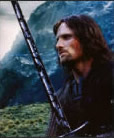Forum
Welcome Guest |
|
|---|---|
 Author Author |
Topic: |
|---|
| pv |
|
||||||||
| Annûniel |
|
||||||||
| foolofatook~ |
|
||||||||
| pv |
|
||||||||
| RiverWoman |
|
||||||||
| Nick_5 |
|
||||||||
| RiverWoman |
|
||||||||
| k |
|
||||||||
| Isafjordur |
|
||||||||
| Valderra |
|
||||||||
| Manephelien |
|
||||||||
| pv |
|
||||||||
| Valderra |
|
||||||||
| pv |
|
||||||||
| Valderra |
|
||||||||
| pv |
|
||||||||
| Valderra |
|
||||||||
| Members Online |









 Children's books...
Children's books... It gives a "steadier", "stronger" subplot/plot, which keeps the story moving. Sometimes, without it, there "is no story".
It gives a "steadier", "stronger" subplot/plot, which keeps the story moving. Sometimes, without it, there "is no story".
 . The horse would have been captured by Animal Control and Alec's parents would do everything to keep him away from the horse. So the boy has to be away from his family and home environment in a totally unfamiliar setting so that he and the Black can become friends. When he returns to his family alive and with the Black, his parents are so grateful for his return, grateful to the horse for saving him from drowning, and impressed by how much he has matured that they accept he and the horse must stay together. I just liked that Alec's experiences with his uncle gave him the skills he needed to survive. The movie played this differently by having Alec much younger than in the book and traveling with his father, who is killed in the shipwreck- the more conventional Hollywood view of the child hero losing a parent before the plot starts to build.
. The horse would have been captured by Animal Control and Alec's parents would do everything to keep him away from the horse. So the boy has to be away from his family and home environment in a totally unfamiliar setting so that he and the Black can become friends. When he returns to his family alive and with the Black, his parents are so grateful for his return, grateful to the horse for saving him from drowning, and impressed by how much he has matured that they accept he and the horse must stay together. I just liked that Alec's experiences with his uncle gave him the skills he needed to survive. The movie played this differently by having Alec much younger than in the book and traveling with his father, who is killed in the shipwreck- the more conventional Hollywood view of the child hero losing a parent before the plot starts to build. 
